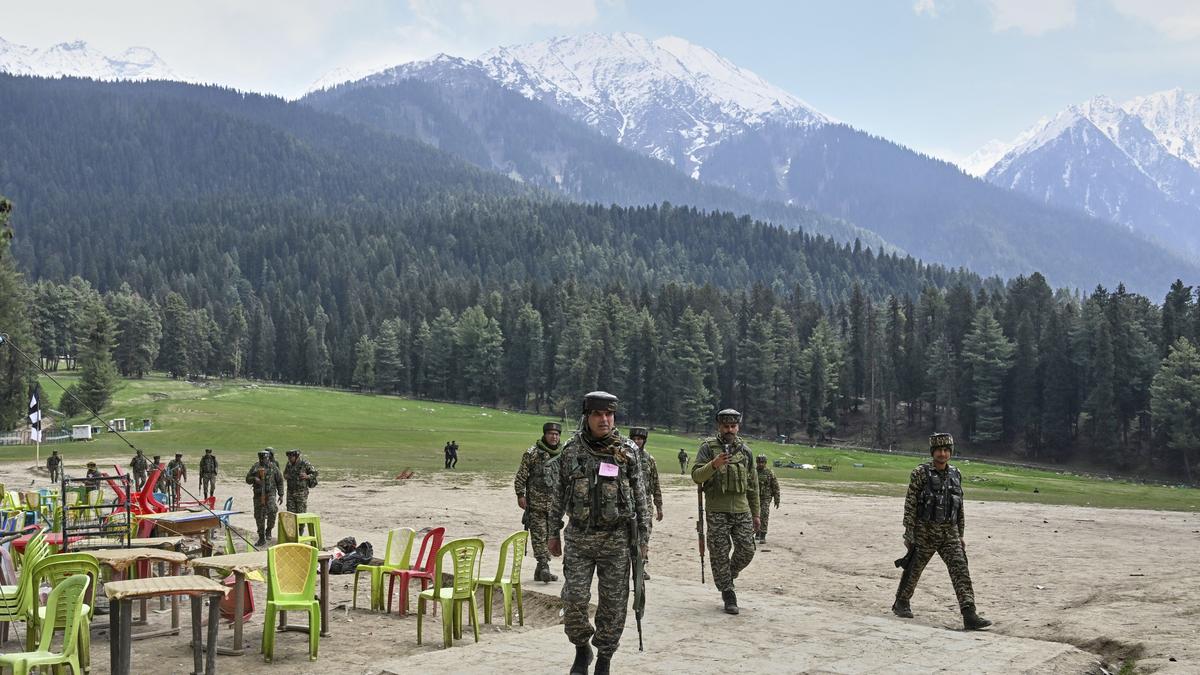The morning after the Pahalgam massacre, we remembered the laughter that vanished mid-air. Children looked for faces that will not return, mothers dreamt of voices that the wind had stolen. And still, the men who plot wars draw their maps in silence, remaining unshaken by the wailing. For me this is not just grief, but the death of meaning. Surely, they died for no reason. And we live with no reason.
It is not just the dead who suffer. The living too ache with fractured memories and empty hands. Mothers fold clothes that will never be worn, and fathers set an extra plate that they must soon take away. They thought we would forget but we remember. We remember the small shoes left at the door, the songs half-sung, the meals half-eaten. We remember the laughter that vanished mid-air, the goodbyes that never thought they were the last. Our loss is not merely of life, but of time, of continuity, while our political leaders speak in cold numbers, distorting the truth with euphemisms. Killing the innocent with no logic is an interruption of the very pulse of existence, the death of meaning.
In the midst of such a tragedy, Yeats’ haunting words of growing disintegration of our world come to my mind: “Things fall apart; the centre cannot hold;/ Mere anarchy is loosed upon the world.” This collapse is not some abstract vision — it is reality. It is the blood-soaked streets, the empty stares of those left behind, the hearts shattered in an instant. Violence now churns beneath the surface of every life, spreading like a cancer. The silence of the dead becomes the haunting truth amid loss and pain.
Rising toll
From the marketplaces of Gaza to the green fields of Pahalgam, from once-vibrant towns now turned to rubble, to villages hollowed out by conflict, the toll of human life rises — silent and appalling, and so deeply expressed by Isaac Rosenberg in his poem Dead Man’s Dump: “And the dead were no more than/ Empty vessels, and their voices/ Were but a wild cry in the night.”
The dust of violence chokes whole generations and erodes human dignity, just as the world is poisoned by the wreckage of conflict and political greed. Violence today is no longer an eruption; it is a grim undercurrent, steady and relentless.
The violence we see today shatters both the living and the dead, tearing down not just bodies, but the very structure of meaning. The mythical sustenance that once tied us to hope, faith, and community is gone: a line from T.S. Eliot’s Wasteland says it all — “A heap of broken images, where the sun beats” — defining a landscape of aridity and devastation, of despair, drought and the belief that nothing can ever be whole again. “These are the fragments that I shore against my ruins,” asserts Eliot at the end of his Wasteland harking back to the undying monuments of civilisation, the great masterpieces of literature and art that sustain human life.
What is really heart-rending is the suffering of the children inheriting not only the trauma of loss but the trauma of abandonment being thrust into a world where safety is a lie and justice a ghost, where small hands reach for missing hands, and find only air. There is no myth left to guide them, no story to make sense of this brutality, no toys or books or favourite drawers in their writing tables they once found refuge in. They grow up in a world without meaning, in a world filled only with echoes of war.
More than anything, it is Amrita Pritam’s anguished cry that echoes in my emptiness, as she laments the violence that eats away at the fabric of human existence: “Ajj Aakhaan Waris Shah Nu” — Today I call out to Waris Shah,/ Rise from your grave,/ Speak from your pages,/ And witness the pain of Punjab once more.” Her words mourn not just a region, but the loss of the sacred, the death of a culture, and the disappearance of the stories that once held meaning. Without them, we are lost in a desert of memory and grief.
Yet, amid all this, there flickers a defiant, aching hope — a refusal to let the dead be erased. While they made widows and orphans, we make songs and prayers. While they made graveyards, we make gardens out of tears. Our hope is not a naive surrender to fate, but a rebellion against the absence of meaning. Even in the face of overwhelming grief, those who remain choose to rebuild and remember. Hope is all that we have.
In W.H. Auden’s elegy In memory of W. B. Yeats, he captures this hope amid the disillusionment of the modern world after the loss of a great poet: “He became his admirers./ Now he is dead./ Now the ghost of his words still haunts us.” The death of the poet in Auden’s world is not just the death of a man; it is the death of a voice that helped make sense of the chaos, the voice that tried to weave myth back into the dust of history. But that voice is gone, and we are left to fend for ourselves in the darkness where art and poetry live on, asserting and reinforcing the ever-living sprit of man, his undying songs that stitch their words into every step he takes. We are the ones who remain and in our broken hearts, the dead still live.
Published – May 11, 2025 04:35 am IST
